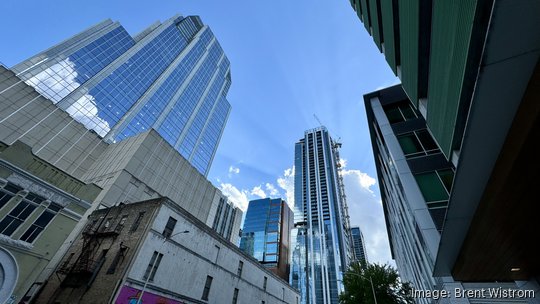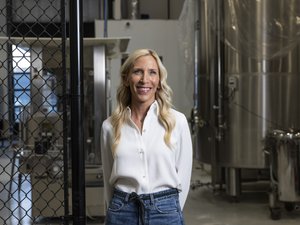
Austin's tech startup ecosystem continues to thrive with a steady flow of companies relocating to the city, bustling events and significant funding rounds.
But despite that continued activity, fewer venture capital deals are getting done.
The Austin metro saw only 80 startup funding deals in the third quarter, which is down from 89 in the second quarter and the lowest deal count in four years, according to a new report by PitchBook and the National Venture Capital Association.
To put that in perspective, Austin has averaged 96 venture capital deals per quarter since 2014, which is the farthest back the PitchBook data goes.
The List: Local VC and private equity firms
The decline indicates its tougher for local startups to secure the funding they need to develop products, make key hires and scale their businesses. But Austin is hardly alone. Venture capital deals have been relatively stagnant across the country.
The national data shows the United States is roughly on pace to match last year's deal count, and overall deal value is likely to exceed 2020's numbers. But it's nowhere near the high-water marks of 2021 and 2022. The Federal Reserve's interest-rate cut might loosen things up, at least a little. Meanwhile, plenty of new startups are coming online across the country.
"More than 4,300 companies raised their first investment in 2023, and another 3,000 have done so this year," the report says. "Now, with high bars to clear and less capital available, the startup ecosystem is struggling to regain its footing for growth."
Exits are one of the key aspects to accelerating startup activity. Currently, there is a record number of private companies — 57,674 — which includes plenty of late-stage startups that in past years might have already IPOed. That means fewer investors are reaping the rewards of startup investments and might be more cautious about placing their next bets.
Of course, there are many exceptions, especially those monster investments flowing into artificial intelligence, such as the gargantuan $6.6 billion in funding announced by OpenAI last week.
"The sustained prominence of large AI deals illustrates that some investors are still willing to make large bets on promising AI startups," the report says. "Hype is not only propelling AI deal sizes and valuations higher but also creating relatively better deal terms for startups."
Austin has seen a flurry of early-stage funding deals for AI-based startups in recent months. That includes Driver AI's $8 million round earlier this week, as well as WebAI's $43 million raise, Knit's $9 million round and AI Fleet Inc.'s $16.6 million infusion.
Venture funding data isn't a concrete measure of local activity because a few large deals can offset quarterly totals, and, oftentimes, angel investments and accelerator investments aren't fully tracked. Meanwhile, some funding that gets attributed to Austin in each quarter may have been realized during other timeframes or in other locations.
For example, the funding total for the third quarter in the Austin metro was $978 million. Of that, $235 million can be attributed to Infinitum's series E round. But about $185 million of that sum was reported by Austin Inno and other publications in 2023. The $35 million extension to that round came in July. Meanwhile, Colossal Laboratories & Biosciences' $162 million deal was also recorded in Austin in the third quarter. Colossal is based in Dallas, although it has offices in Austin and several other areas.
But, specifics aside, the data show that VC funding for startups in Austin, along with the rest of the nation, remains relatively stagnant.
"VC’s restrained pace of recovery is due largely to the persistent headwinds that have blocked the pipeline of exit, fundraising, and dealmaking activity," the report says. "As liquidity remains elusive, increasingly cautious venture investors have stepped up their standards, opting for quality over quantity as they increase time spent on due diligence and advocate for more investor protections in term sheets."








